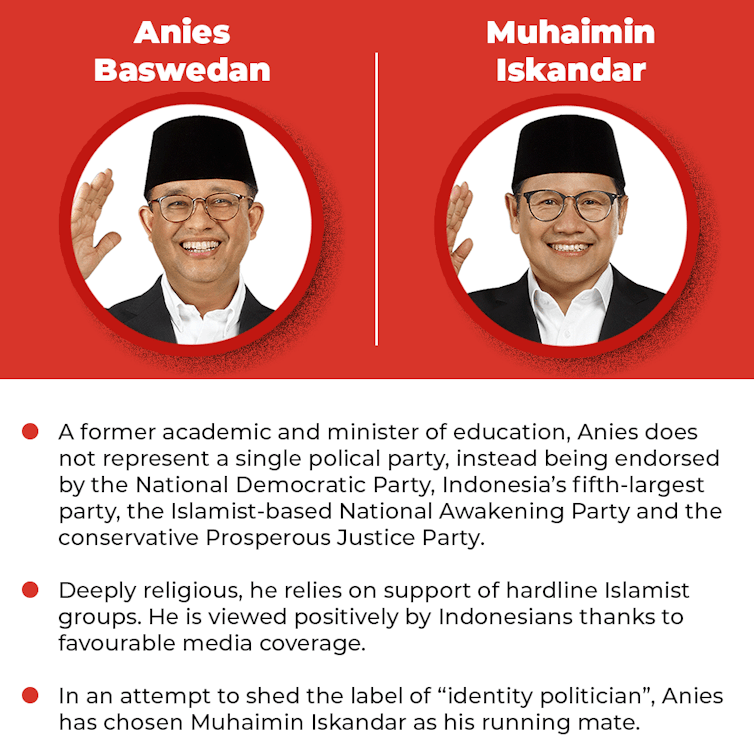Indonesia’s massive election, by the numbers
- Written by Stephen Sherlock, Visiting Fellow, Department of Political and Social Change, Coral Bell School of Asia Pacific Affairs, Australian National University

Indonesians are going to the polls to elect a new president on Wednesday. There are three candidates running, alongside their vice presidential candidates.
According to opinion polls, the favourite is Prabowo Subianto[1], leader of the Greater Indonesia Party (Gerindra), a populist and nationalist party he founded in 2008. A former army general, Prabowo has already stood unsuccessfully for president twice before. He is also the defence minister in the cabinet of the current president, Joko “Jokowi” Widodo.
The other contenders are Ganjar Pranowo, a former governor of the large province of Central Java and a member of Indonesia’s biggest party, the Indonesian Democratic Party of Struggle (PDI-P), and Anies Basweden, an independent candidate who was governor of the city of Jakarta.
Prabowo is the frontrunner, but it’s unclear whether he will win an absolute majority of votes in the first round. If he fails to win 50.1% of the vote, there will be a runoff election between the two leading candidates in June.
















